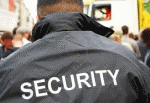
Data collected by the British Crime Survey and reported by the BBC indicate that, while overall crime has been on the decline over the past decade, burglaries are on the increase. It’s still essential for business owners to protect the premises in which they operate.
Sifting through the data supplied by surveys like this is a bit confusing. On the one hand, the data seem to indicate that crime is decreasing across England and Wales. However, crime surveys also show increases in several categories – particularly when it comes to theft and burglary. And to be honest, regardless of what the year-over-year trends suggest, the fact remains that burglary and vandalism are very real, very current issues against which business owners are well-advised to defend themselves.
With that in mind, consider taking the following measures to keep your business establishment secure:
- Set up adequate lighting - There are probably a few exceptions, but the average burglar prefers to work in the dark. Light is an occupational hazard, especially in conjunction with closed circuit television. Adequate lighting makes it much harder for a would-be vandal to slip onto your business premises without being detected.
- Hire personnel to watch the premises - This is the highest level of security in which a business establishment can invest. The average security guard is going to be ex-services – retired or semi-retired. This ensures a high level of training and competency. If the premises require an extra layer of live security, consider going the extra mile and hiring a dog handling service as well. If a burglar or vandal is not deterred by the security personnel, an ominous Alsatian or Doberman should do the trick.
- Set up car park barriers - Part of keeping burglars off the property is limiting their access to your facilities. Manned barriers ensure that everyone who drives onto and off of the property is taken into account. It won’t necessarily prevent a crime from taking place, but it will at least ensure that the culprit was logged in and taken note of by the security personnel. As such, if a person wants to slip in undetected, they will have to find another way in and forego the fast getaway option. In so many words, you’re insisting that they play the game on your terms, with a strong advantage to you and your business.
- Install 24-hour surveillance equipment - Closed circuit television (CCTV) serves two purposes. If a break-in does happen, the footage from your video feed could play an instrumental role in bringing that person to justice. Granted, justice after the fact is not a best-case scenario for business owners. However, it does ensure that the person who broke into your premises will not do the same again in the near future. But there’s an added benefit to installing cameras. Broadcast the fact that video surveillance is in progress, and would-be vandals will think twice before moving forward with a heist.
- Install an alarm system - Much like closed circuit television, a state of the art alarm system is probably more of a deterrent than it is a means of apprehending criminals. Have you ever noticed that business establishments are very forthcoming with their alarm system details? The idea is not to surprise the person with a sounding alarm. Instead, make sure they are completely clear on the fact that – should they decide to break in – an alarm will be tripped, the police will be notified and their window of opportunity will be significantly shortened.
- Check the building’s barriers - Everything that stands between the inside and outside of your facility is a barrier. Obviously, any walls and fences contribute to overall security. Further to this, doors, locks and smash-resistant windows are also taken into account. If you hire a security consultant, they can arrange to do a walkthrough with you to look for weaknesses in the barriers that you currently have in place.
Zoe Ferguson writes for HG Security - a UK company that offers services catering to the needs of clients for a security guard or house sitter. They also provide products such as alarm systems and door locks.
